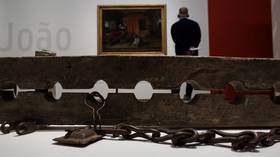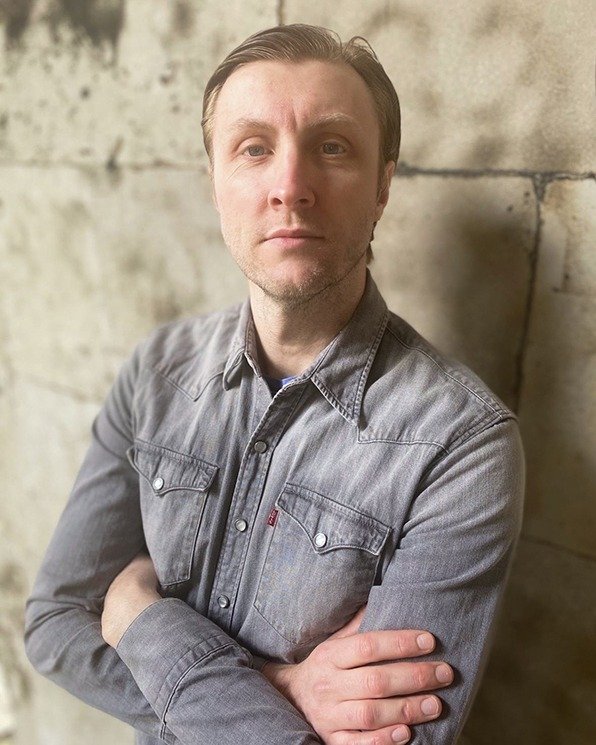It’s the elite who should pay for the past sins of slavery. The idea of collective guilt is a sham

A new exhibition called Slavery has opened in Amsterdam amid suggestions it’s an issue that affects all Dutch people. Why? Isn’t it solely the responsibility of those linked to the slave trade to atone for their forefathers’ sins?
We’re not all equal. Life doesn’t function like that.
And slavery is the ultimate manifestation of how one person can be deemed of lesser worth than someone else.
Another example is how the creation and application of slavery is viewed. This week, one of the art world’s most-renowned institutions, Amsterdam’s Rijksmuseum, launched a new exhibition. Titled Slavery, it focuses on 10 individual stories to represent the period of ‘legalised injustice’ known as the Dutch Golden Age.
Learning from the horrors of the past is commendable, but there’s a concerning undertone as to how the exhibition has been billed.
Slavery was ceremonially opened by King Willem-Alexander, whose lineage is the House of Orange.
And it was his ancestors who oversaw the brutal regime that saw half-a-million Africans transported as slaves and the creation of Dutch Guiana with its horrific plantations.
The controversial British tycoon Edward Colston – whose statue was torn down in his hometown Bristol by a mob last summer – even sold his shares in the Royal African Company to William, Prince of Orange. All the slaves were branded with RAC across their chests.
So the comments of the Rijksmuseum’s director were particularly interesting when he discussed how the wealth bestowed and cruelty endured are not just relevant to the descendants of those enslaved. Taco Dibbits said, “Obviously you would have to ask [Willem-Alexander] yourself, but I think with that he emphasises that this is part of our history that concerns all people in the Netherlands and not only the descendant of a slave. I mean, it’s about me, it’s about you, it’s about the King himself… it’s about everybody who lives in the country.”
On quick reading, this seems to adhere to the current argument that nationals of a country that benefited from slavery should acknowledge the advantages it afforded them. But it could also be interpreted as changing the cast members after the final credits have rolled. Because slavery was not carried out by every person in the Netherlands. It was wilfully orchestrated by the House of Orange and the elite. So, is there really need for collective guilt?
The same applies in Britain, where the elite and tobacco and sugar barons treated people like cattle. Prince William recently said his family is “very much not racist,” but the fact is his ancestors very much were.
The Rijksmuseum is part of the elite tranche of society, run by people who have a status that most of us don’t. And the subtle intonations of its director are a smart ploy.
Those who directly benefited from slavery, be it via huge family wealth or positions of influence, know the game is up. They can no longer rely on people dismissing it as the product of a bygone era. Excuse the pun, but that ship has sailed.
As statues have been torn down and names chiselled off buildings around the world, there seems to be a gravitation towards using the great unwashed as human shields. Dibbits’ assertion that “it’s about everybody who lives in the country” simply isn’t the case. Not everybody agreed with or played a part in slavery.
The elite shouldn’t try to drag everyone into their mea culpa. They should stand up, take a deep breath and admit they were linked to it. Those who come from working-class stock had no part to play, and have nothing to apologise for.
What came after and whether they benefited from a richer society is immaterial. None of us can control where we’re born – some are lucky and some are not when it comes to economic advancement.
King Willem-Alexander clearly hasn’t grasped this, as last year, when addressing his country’s colonial rule of Indonesia, he said, “I would like to express my regret and apologise for excessive violence on the part of the Dutch in those years.” But again, it was only some of the Dutch, and they were the pals of the King of the time. King Willem-Alexander had the nerve to offer an apology on behalf of millions of people who have no connection to what went on.
This attempt to assert collective responsibility offers royalty and the elite the opportunity to escape without proper sanction. They spread the blame so thin and wide, that it becomes impossible to suggest any realistic remedy.
And that’s what makes the King’s role in the opening of Slavery so troubling. How can we possibly deal with the transgressions of the past when those with direct lineage selectively recuse themselves?
The elite are on a pedestal. Whether it’s living in grand palaces, being feted by millions or not having to grind out a living, they traverse a different path. But when it comes to slavery and the unavoidable mess it has caused, suddenly they become part of the big melting pot of like-minded souls. It’s cowardly.
Grand exhibitions like the one at the Rijksmuseum might look good, but they aren’t strictly necessary. Plenty of literature and academic work exists on slavery; we all have a fairly good idea of what went on. And we have an even clearer picture of who was responsible.
It’s time those linked to slavery accepted their role in what went on. Until then, there will be no justice, as collective guilt is a sham.
Think your friends would be interested? Share this story!
The statements, views and opinions expressed in this column are solely those of the author and do not necessarily represent those of RT.
















